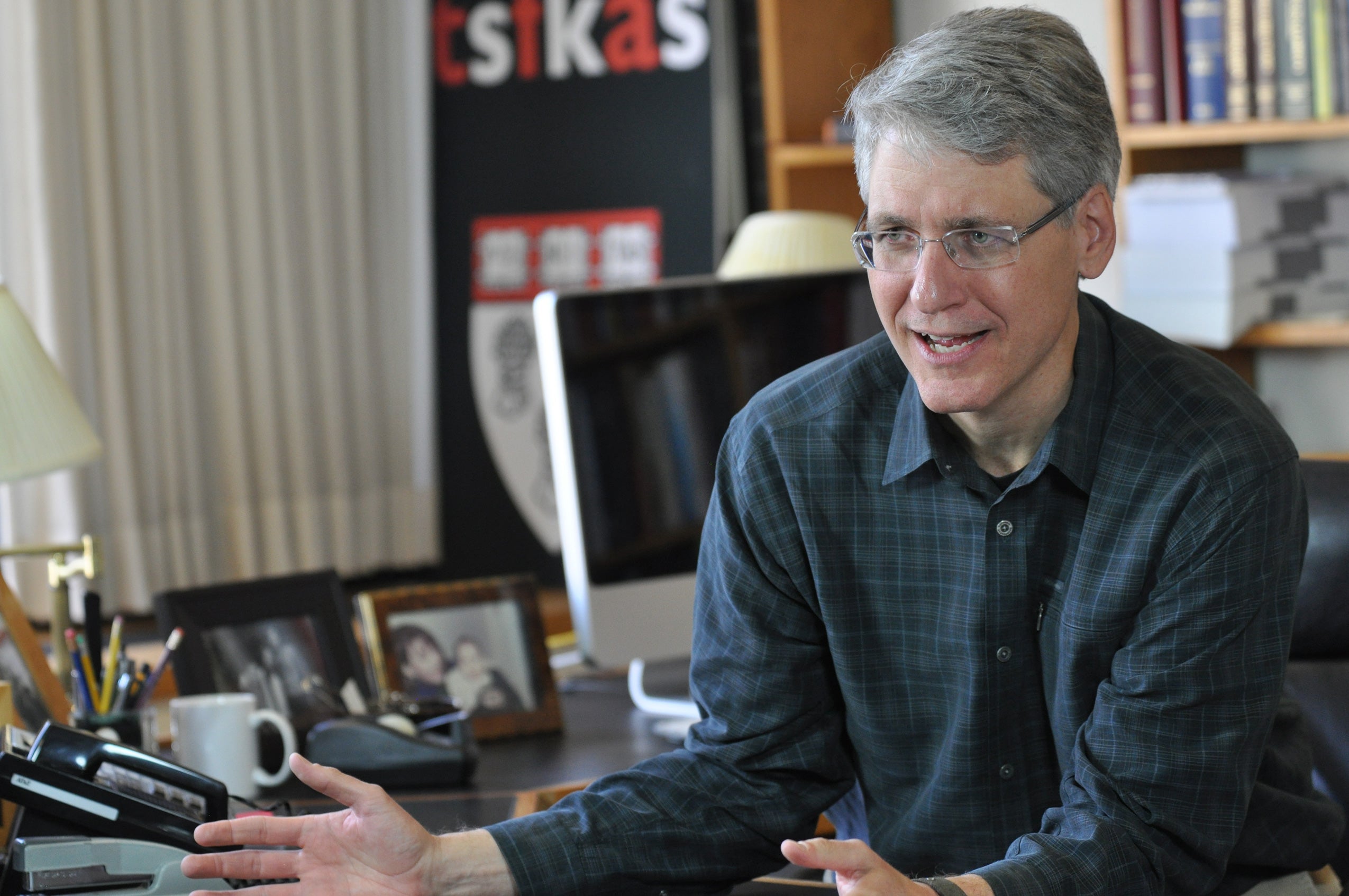Individual free choice, an idea that permeates common sense and legal theory, assumes that actions reflect the stable preferences of individual actors. Individuals are responsible for their actions (that is, their preference-driven choices), and laws can therefore be designed on that assumption.
But if that assumption is wrong, says Harvard Law School Professor Jon Hanson, then laws built upon it may not be advancing the ends they purport to serve. And Hanson’s view, steeped in interdisciplinary study in the mind sciences, is that the assumption of indvidual free choice is faulty. The decisions people make, he says, are often determined by influential factors in the situation—that is, non-salient and often invisible external and internal factors that influence, not only how we behave, but also how we make sense of our behavior.
This is what Hanson calls “situationism.” Using social psychology and related mind sciences to help understand law and legal theory, he suggests that people, ideologies, and laws are shaped by forces quite different from those they imagine. While varying versions of the individual-choice model have served as the basis for most laws, policies, and mainstream legal theories, Hanson says, social psychology, social cognition, cognitive neuroscience, and related social scientific fields have uncovered many ways in which that model is detrimentally incorrect.
Hanson explored some of those ideas in an October 29th lecture at HLS entitled, “The Human Animal, Ideology, the Law, and other Situational Characters.” The lecture commemorated his appointment as the Alfred Smart Professor of Law. The chair was endowed by the Smart Family Foundation, in honor of Alfred Smart, a 20th-century publishing entrepreneur who helped launch Esquire magazine and other publications.
Among those in the audience was Hanson’s colleague, Professor Alan Stone, a psychiatrist and interdisciplinary expert in law and the mind sciences and a renowned film critic. When Stone retires from the HLS faculty, the Smart chair will become the Alan Stone Professorship. Alfred Smart was Stone’s father-in-law.
In his lecture, Hanson incorporated several movie clips to help illustrate his arguments and to recognize Alan Stone’s love of cinema. Referring to a famous dream sequence from Federico Fellini’s “8 ½,” Hanson said: “Our ideology is like a car—it’s an instrument or tool that enables us to get around and gives us the feeling that we’re in control, in the driver’s seat of our lives. [But] we are far more situationally constrained than we ever imagined. Consequently, we’re unable to get where we want to go . . . . .In my view, a necessary condition for making better laws is first understanding who we are, what moves us, and what purposes and subconscious motives our ideologies are actually serving.”
Hanson said that the mind sciences behind “situationism” have complex implications for the legal system, and that the law-making process must do a better job of taking into account how individuals make decisions.
Hanson joined the HLS faculty in 1992 after receiving a law degree from Yale. Hanson is is an expert in tort and corporate law with a background in law and economics. He is co-director and creator of the Project on Law and Mind Sciences at HLS and contributes regularly to a blog that discusses the legal implications of human decision-making – The Situationist. Hanson received the 1999 Sacks-Freund Award for excellence in teaching and was a finalist in both 2000 and 2006.
In her introduction of Hanson, Dean Elena Kagan ’86 said: “His deep appreciation and concern for the students of this law school knows no real bounds. He is teacher, mentor, and friend to so many students – possibly to more than any other faculty member at this law school.”
In honor of Alan Stone’s interdisciplinary expertise, the chaired professorship is to be given to someone who has “distinction in scholarship related to the intersection of legal studies and one of the following: psychiatry, psychology, medicine, and literary and film studies.”
Stone is currently the Touroff-Glueck Professor of Law and Psychiatry, a joint appointment held with HLS and the Harvard Medical School. Kagan hailed him as “one of the earliest and one of the best interdisciplinary scholars at Harvard,” having forged his interdisciplinary paths among law and psychiatry and law and film studies for almost four decades.
In addition to his work exploring the intersection of law and psychiatry, Stone is a movie critic for the Boston Review, and he recently published a book entitled, “Movies and the Moral Adventure of Life.”
